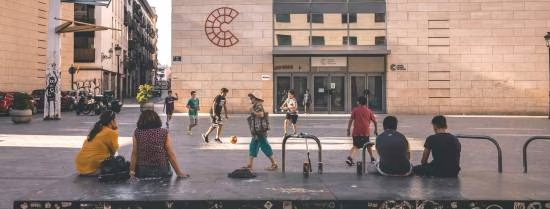Our teaching and learning methods are anchored in the unique IHS approach of cross-fertilization of education, advisory and research.
The IHS approach is designed to equip students to form multidimensional solutions to reducing poverty and improving the quality of life in cities. Alongside IHS teaching and research activities, our faculty members work in the field on real-life cases around the world. Challenges, learnings and questions from these different contexts are brought back to the classroom and woven into our curriculum. This teaching method allows students to contribute to contemporary research by dedicating their Master’s thesis to real-world urban issues.
A key feature of the IHS teaching methods is the link between theories with practice. Students learn through a blend of lectures, real-life case studies, discussions, debates, simulation environments, written assignments and group work. Field visits and projects in Rotterdam and other Dutch cities provide first-hand exposure to local urban problems. Students have the option to complete their thesis fieldwork abroad or in the Netherlands and immerse themselves in a relevant urban context to collect data.


